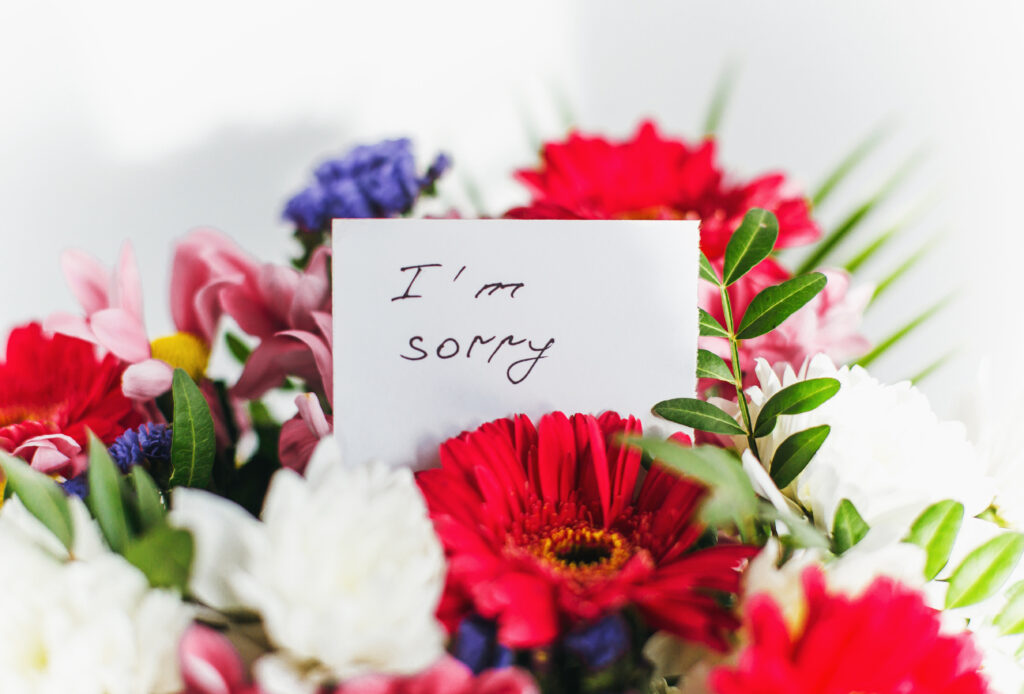{20+ ) different ways to say “sorry” and talk about making mistakes and doing something wrong (From: The Perfect Life Partner book by Ranjot)
.
“Looks like I gave you the wrong phone number. Sorry about that.”
“Oops / whoops – I just spilled some coffee. I’ll clean it up.”
We use oops and whoops to admit minor accidents – small things that don’t cause too much harm.
“It was my fault that we didn’t get to the airport on time.”
“I take full responsibility for failing to train the employees properly.”
The expressions “I messed up / I screwed up” are informal ways to say you did something wrong.
“My apologies for keeping you waiting. I’m running a little late today.”
It’s common to say “My apologies for” or “I apologize for” in business or professional contexts.
“I shouldn’t have taken your camera. I should have asked you first.”
“I gave you the silent treatment, and that was wrong of me.”
“I haven’t been helping you around the house at all. I’m ashamed of my behavior.”
“Our website is not working properly. We sincerely apologize for the inconvenience.”
We can use these phrases to promise that we will behave differently in the future.
“I’m sorry I had to work late, and missed our date. How can I make it up to you?“
“I know that what I did was wrong. I hope you can forgive me.“
“Sorry – is anyone sitting here?”
Or more informally, “What?” or “I didn’t catch what you said.”
“I’m so sorry for your loss” – is a good one to use whenever someone’s relative or friend has died.
You can also say “My condolences” – this is a little more formal.




